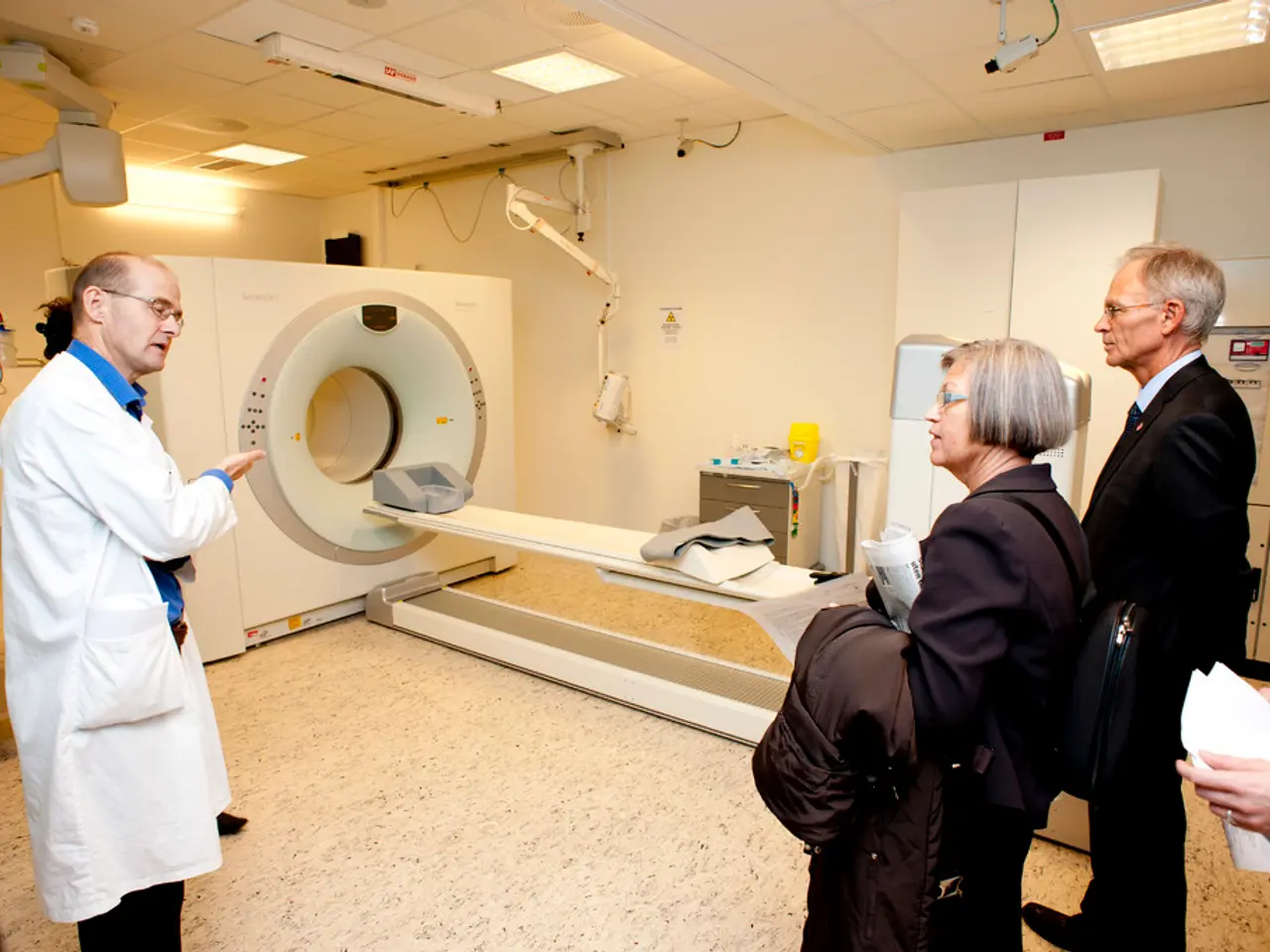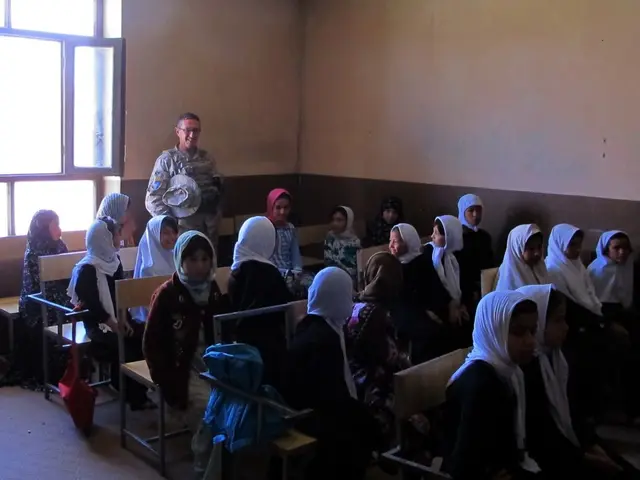Improvisational acting lessons are incorporated into Mayo Clinic's resident training to enhance interactions with patients
In an innovative approach to medical training, Minnesota's prestigious Mayo Clinic has incorporated improv comedy classes into the curriculum for its medical residents[1]. This unique initiative aims to improve bedside manners and communication skills, essential elements for cultivating positive physician-patient relationships[3][5].
Key aspects of the improv program include:
- **Adapting to the moment:** Improv encourages residents to think on their feet, responding flexibly to patient needs rather than relying solely on textbook knowledge[1].
- **Enhancing empathy and communication:** Exercises such as mirroring patients' body language and the “yes and” game help residents become more attentive and engage patients more openly, facilitating better conversations[1].
- **Building resilience:** Games like "loser ball," where participants deliberately fail to catch an imaginary ball, teach residents to become comfortable with failure and uncertainty, reducing anxiety in clinical interactions[1][3].
Initially met with skepticism, the improv workshops have proven to be an effective means of developing critical interpersonal skills that are difficult to learn through traditional medical training[1][3]. These skills directly enhance residents' bedside manner by fostering a more relaxed, empathetic, and attentive presence during patient interactions.
First-year resident, Dr. Manvir Sandhu, initiated the improv exercise with fellow resident, Dr. Tea Pere[6]. The duo engaged in a series of exercises, including the "yes and" game, where they started every sentence with "yes, and" and discussed a variety of topics, often food-related[4].
Dr. Tea Pere, who related improv exercises to her work with patients, using empathetic communication, expressed a preference for kimchi and hot pot, mentioning the probiotic effects[7]. Dr. Manvir Sandhu, in agreement with Dr. Tea Pere, emphasized the importance of paying attention to a patient's body language and anticipating a patient's response, avoiding dismissive communication[2].
Overseeing the doctors doing the improv training, Dr. Chris Boswell stated that the skills help residents think on their feet in evolving situations[1]. The improv classes, led by improv comedy coach Tane Danger, have been a part of the Mayo Clinic's training for several years now[5].
In summary, the Mayo Clinic's implementation of improv comedy as part of resident training effectively improves communication abilities and bedside manners, making doctors better equipped to build rapport, understand patient cues, and manage the dynamic nature of medical encounters[1][3][5].
- To complement their formal education, Mayo Clinic residents also participate in improv comedy classes aimed at enhancing their communication skills in the realm of health-and-wellness.
- Recognizing the importance of mental-health in the healthcare setting, the unique improv program at the Mayo Clinic also focuses on building resilience and promoting empathy, crucial elements for fostering positive relationships between doctors and patients.
- Beyond medical training, the skills gained from improv comedy classes, such as adaptability and open communication, can also be applied to education-and-self-development, boosting personal-growth and effectiveness in various areas of life.




